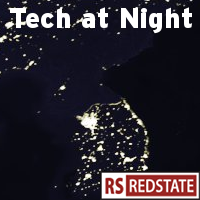
Good evening. I’ve been getting some warnings for a while now about the possible next frontier in Internet regulation. I still haven’t digested it all myself, but I wanted to get the idea out there for people to think about, and be watchful for.
The Access Board is a government agency that sets rules for websites as directed under Section 508 of the Rehabilitation Act. It only applies to government websites. I see nothing to fear here right now. However this sort of thing could grow, first to federal contractors over a certain size, then all contractors, then to all businesses over a certain size… you get the idea.
After all, there’s already a push at the UN to declare it a Right to have accessible websites. I’m all for accessibility. I’ve long written HTML and supported good coding practices that naturally help accessibility. But I’m not for a nanny state, sorry.
Continue reading »

Good evening. It’s going to be short tonight, because I don’t actually have anything new to say about G—– or F— P—- tonight, as against freedom as they both are.
But I will say this about Net Neutrality: competition from new technology is the way out of any problems we have with the ISP monopolies and duopolies that state and local regulators cram down our throats. It’s not theoretical, either: Sprint is deploying 4G WiMAX service over more and more of the country.
Technology, not Net Neutrality regulation, is what we need.
Continue reading »

Good evening. Sure, it’s technically morning, but when I went to post tonight I realized I had nothing queued up to write about, so I had to make a crash run through my news feeds before I could get started.
But get started we shall tonight with Apple and the Library of Congress. The Library of Congress is apparently entrusted with setting rules for what forms of reverse engineering are allowed under the Digital Millennium Copyright Act, a landmark bill which included (over)broad restrictions on software. In short, the DMCA pretty much bans reverse engineering or circumvention of software or hardware that enforces copyright. Exceptions are given though, and the Library of Congress has announced some more exceptions.
One of them is a doozy: Both major forms of Apple iPhone “jailbreaking” are now expressly legal in this country. It is allowed to circumvent Apple’s restrictions to install legitimate software otherwise inaccessible through the App Store. It is also allowed to buy a used iPhone and circumvent the AT&T carrier restriction in it.
In practice this might not mean much, as jailbreaking activity was already strong due to clear legality in other countries from the start. That fact forced Apple to fight jailbreaking technologically, rather than legally. But now the full might of American engineering may be brought to bear on iPhone jailbreaking, and Apple might have a tougher time going forward.
Continue reading »